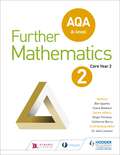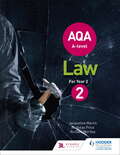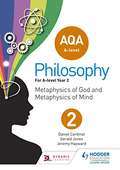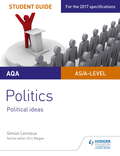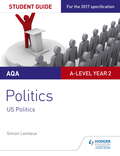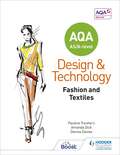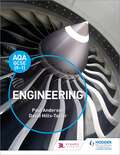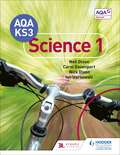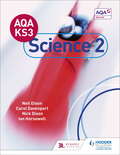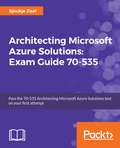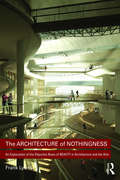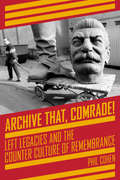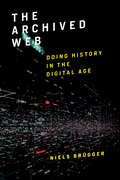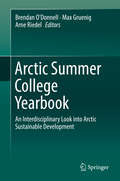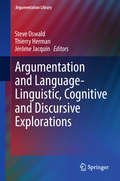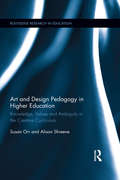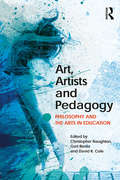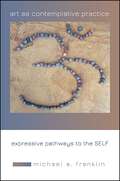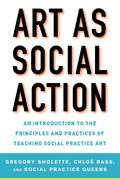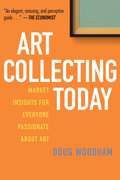- Table View
- List View
AQA A Level Further Mathematics Year 2
by Ben Sparks Claire BaldwinExam board: AQALevel: A-levelSubject: MathematicsFirst teaching: September 2017First exams: Summer 2019Develop your students' knowledge, skills and understanding so that they can reason and apply mathematical techniques in solving problems; with resources developed specifically for the AQA specification by subject specialists and MEI (Mathematics in Education and Industry).- Ensure targeted development of reasoning and problem-solving skills with practice questions and differentiated exercises that build mathematical techniques.- Help build connections between topics with points of interest and things to notice such as links to real world examples and noticing patterns in the mathematics.- Develop understanding, address misconceptions and progress skills further with a variety of worked examples and solutions, practice questions and activities.- Enhance individual understanding with discussion points designed for the classroom.- Consolidate understanding with end of chapter summaries of the key points.- Reinforce Year 1 content with short review chapters.
AQA A-level Law for Year 2
by Jacqueline Martin Richard Wortley Nicholas PriceExam board: AQALevel: A-levelSubject: LawFirst teaching: September 2017First exams: Summer 2019This title has been selected for an AQA approval process.Accurately cover the breadth of content in the new 2017 AQA A-level specification with this textbook written by leading Law authors, Jacqueline Martin, Richard Wortley and Nicholas Price.This engaging and accessible textbook provides coverage of the new AQA A-level Law specification and features authoritative and up-to-date material on the important changes to the law.- Book 2 includes the second section of all mandatory units and both the Human Rights Law and Contract Law optional units.- Important, up-to-date and interesting cases and scenarios highlight key points.- Discussion and activity tasks increase your students' understanding of more difficult concepts.- Practice questions and 'check your understanding' questions to help you prepare for your exams.Authors:- Jacqueline Martin LLM has ten years' experience as a practising barrister and has taught law at all levels.- Richard Wortley has taught law at all levels. He has held a number of examining and assessing roles over the past 25 years. He retired from a management position in a large FE College to work freelance in law teacher support, writing and assessment work.- Nicholas Price is an experienced teacher of Law and an A-Level Law textbook author.
AQA A-level Philosophy Year 2: Metaphysics of God and metaphysics of mind
by Dan Cardinal Jeremy Hayward Gerald JonesEnable students to critically engage with the new 2017 AQA specifications with this accessible Student Book that covers the key concepts and philosophical arguments, offers stimulating activities, provides a key text anthology and assessment guidance.- Cements understanding of complex philosophical concepts and encourages students to view ideas from different approaches through clear and detailed coverage of key topics.- Strengthens students' analytical skills to develop their own philosophical interpretations using a variety of inventive and thought-provoking practical activities and tasks.- Encourages students to engage with the anthology texts, with references throughout and relevant extracts provided at the back of the book for ease of teaching and studying.- Stretches students' conceptual analysis with extension material.- Helps AS and A-level students to approach their exams with confidence with assessment guidance and support tailored to the AQA requirements.
AQA A-level Philosophy Year 2: Metaphysics of God and metaphysics of mind
by Jeremy Hayward Gerald Jones Dan CardinalExam board: AQALevel: A-levelSubject: PhilosophyFirst teaching: September 2017First exams: Summer 2019Enable students to critically engage with the new 2017 AQA specifications with this accessible Student Book that covers the key concepts and philosophical arguments, offers stimulating activities, provides a key text anthology and assessment guidance.- Cements understanding of complex philosophical concepts and encourages students to view ideas from different approaches through clear and detailed coverage of key topics.- Strengthens students' analytical skills to develop their own philosophical interpretations using a variety of inventive and thought-provoking practical activities and tasks.- Encourages students to engage with the anthology texts, with references throughout and relevant extracts provided at the back of the book for ease of teaching and studying.- Stretches students' conceptual analysis with extension material.- Helps AS and A-level students to approach their exams with confidence with assessment guidance and support tailored to the AQA requirements.
AQA A-level Politics Student Guide 3: Political Ideas
by Simon LemieuxWritten by experienced teacher Simon Lemieux, this Student Guide for Politics:-Identifies the key content you need to know with a concise summary of topics examined in the A-level specifications-Enables you to measure your understanding with exam tips and knowledge check questions, with answers at the end of the guide-Helps you to improve your exam technique with sample answers to exam-style questions-Develops your independent learning skills with content you can use for further study and research
AQA A-level Politics Student Guide 4: Government and Politics of the USA and Comparative Politics
by Simon LemieuxWritten by experienced teacher Simon Lemieux, this Student Guide for Politics:-Identifies the key content you need to know with a concise summary of topics examined in the A-level specifications-Enables you to measure your understanding with exam tips and knowledge check questions, with answers at the end of the guide-Helps you to improve your exam technique with sample answers to exam-style questions-Develops your independent learning skills with content you can use for further study and research
AQA A-level Politics Student Guide 4: Government And Politics Of The Usa And Comparative Politics
by Simon LemieuxExam board: AQALevel: A-levelSubject: PoliticsFirst teaching: September 2017First exams: Summer 2019Written by experienced teacher Simon Lemieux, this Student Guide for Politics:-Identifies the key content you need to know with a concise summary of topics examined in the A-level specifications-Enables you to measure your understanding with exam tips and knowledge check questions, with answers at the end of the guide-Helps you to improve your exam technique with sample answers to exam-style questions-Develops your independent learning skills with content you can use for further study and research
AQA AS/A-Level Design and Technology: Fashion and Textiles
by Amanda Dick Pauline Treuherz Denise DaviesEncourage your students to be creative, innovative and critical designers with a textbook that builds in-depth knowledge and understanding of the materials, components and processes associated with the creation of fashion and textile products.Our experienced author team will help guide you through the requirements of the specification, covering the core technical and designing and making principles needed for the 2017 AQA AS and A-level Design and Technology Fashion and Textiles specification.- Explores real-world contexts for fashion and textiles- Develops practical skills and theoretical knowledge and builds student confidence- Supports students with the application of maths skills to fashion and textiles- Helps guide students through the requirements of the Non-Exam Assessments and the written exams at both AS and A-level
AQA AS/A-Level Design and Technology: Fashion and Textiles
by Pauline Treuherz Amanda Dick Denise DaviesExam board: AQALevel: A-levelSubject: Design and TechnologyFirst teaching: September 2017First exams: Summer 2018 (AS) Summer 2019 (A-Level)Encourage your students to be creative, innovative and critical designers with a textbook that builds in-depth knowledge and understanding of the materials, components and processes associated with the creation of fashion and textile products.Our experienced author team will help guide you through the requirements of the specification, covering the core technical and designing and making principles needed for the 2017 AQA AS and A-level Design and Technology Fashion and Textiles specification.- Explores real-world contexts for fashion and textiles- Develops practical skills and theoretical knowledge and builds student confidence- Supports students with the application of maths skills to fashion and textiles- Helps guide students through the requirements of the Non-Exam Assessments and the written exams at both AS and A-level
AQA GCSE (9-1) Engineering: Aqa Gcse (9-1) Engineering Epub
by Paul Anderson Mark Griffiths David Hills-TaylorBuild a foundation of knowledge alongside practical engineering skills for the 2017 AQA GCSE (9-1) Engineering specification, inspiring your students' problem solving skills for the NEA and beyond.This accessible textbook sets out clear learning objectives for each topic, with activities to reinforce understanding and examples that will support all students with the maths and science skills needed.- Builds knowledge of materials, manufacturing processes, systems, testing and investigation methods and modern technologies- Helps students to apply practical engineering skills to design and make imaginative prototypes that solve real and relevant engineering problems- Develops mathematical understanding with clear worked examples for all equations and maths skills and questions to test knowledge- Includes guidance on how to approach the non-exam assessment (NEA) with creativity and imagination- Prepares for the written exam with advice, tips and practice questions
AQA GCSE (9-1) Engineering
by Paul Anderson David Hills-TaylorExam board: AQALevel: GCSESubject: EngineeringFirst teaching: September 2017First exams: Summer 2019Build a foundation of knowledge alongside practical engineering skills for the 2017 AQA GCSE (9-1) Engineering specification, inspiring your students' problem solving skills for the NEA and beyond.This accessible textbook sets out clear learning objectives for each topic, with activities to reinforce understanding and examples that will support all students with the maths and science skills needed.- Builds knowledge of materials, manufacturing processes, systems, testing and investigation methods and modern technologies- Helps students to apply practical engineering skills to design and make imaginative prototypes that solve real and relevant engineering problems- Develops mathematical understanding with clear worked examples for all equations and maths skills and questions to test knowledge- Includes guidance on how to approach the non-exam assessment (NEA) with creativity and imagination- Prepares for the written exam with advice, tips and practice questions
AQA Key Stage 3 Science Pupil Book 1
by Neil Dixon Carol Davenport Nick Dixon Ian HorsewellEnsure that every student develops the maths, literacy and working scientifically skills they need to succeed with this skills-focused Pupil Book that contains a variety of activities, questions and real-world examples that are tailored to the Big Ideas and mastery goals of the AQA KS3 Syllabus. - Develop conceptual understanding with a variety of questions that require students to apply their knowledge to real-world scenarios.- Build working scientifically skills with various Enquiry activities matched to the AQA syllabus.- Test understanding and measure progress with factual recall questions developed around the ideas of Generalisations, Principles and Models.- Stretch knowledge and understanding with extend tasks linked to higher-order thinking skills - Compare, Evaluate and Predict.- Bridge the gap between Key Stages 2 and 3, with a focus on maths and enquiry skills and understanding scientific terminology.- Provides comprehensive support for non-specialist or less-confident teachers when used in conjunction with the online Teaching & Learning resources.Written in association with Sheffield Hallam University:The Science Education Team within Sheffield Institute of Education (SIoE), is one of the leading STEM education groups in Europe, with a worldwide reputation for knowledge exchange and research. SIoE leads national and international STEM education programmes covering curriculum and pedagogical design and development, widening participation to traditionally under-represented groups, and research in science education.
AQA Key Stage 3 Science Pupil Book 2
by Nick Dixon Neil Dixon Carol DavenportEnsure that every student develops the maths, literacy and working scientifically skills they need to succeed with this skills-focused Pupil Book that contains a variety of activities, questions and real-world examples that are tailored to the Big Ideas and mastery goals of the AQA KS3 Syllabus. - Develop conceptual understanding with a variety of questions that require students to apply their knowledge to real-world scenarios.- Build working scientifically skills with various Enquiry activities matched to the AQA syllabus.- Test understanding and measure progress with factual recall questions developed around the ideas of Generalisations, Principles and Models.- Stretch knowledge and understanding with extend tasks linked to higher-order thinking skills - Compare, Evaluate and Predict.- Bridge the gap between Key Stages 2 and 3, with a focus on maths and enquiry skills and understanding scientific terminology.- Provides comprehensive support for non-specialist or less-confident teachers when used in conjunction with the online Teaching & Learning resources.Written in association with Sheffield Hallam University:The Science Education Team within Sheffield Institute of Education (SIoE), is one of the leading STEM education groups in Europe, with a worldwide reputation for knowledge exchange and research. SIoE leads national and international STEM education programmes covering curriculum and pedagogical design and development, widening participation to traditionally under-represented groups, and research in science education.
AQA Key Stage 3 Science Pupil Book 2
by Neil Dixon Carol Davenport Nick Dixon Ian HorsewellEnsure that every student develops the maths, literacy and working scientifically skills they need to succeed with this skills-focused Pupil Book that contains a variety of activities, questions and real-world examples that are tailored to the Big Ideas and mastery goals of the AQA KS3 Syllabus. - Develop conceptual understanding with a variety of questions that require students to apply their knowledge to real-world scenarios.- Build working scientifically skills with various Enquiry activities matched to the AQA syllabus.- Test understanding and measure progress with factual recall questions developed around the ideas of Generalisations, Principles and Models.- Stretch knowledge and understanding with extend tasks linked to higher-order thinking skills - Compare, Evaluate and Predict.- Bridge the gap between Key Stages 2 and 3, with a focus on maths and enquiry skills and understanding scientific terminology.- Provides comprehensive support for non-specialist or less-confident teachers when used in conjunction with the online Teaching & Learning resources.Written in association with Sheffield Hallam University:The Science Education Team within Sheffield Institute of Education (SIoE), is one of the leading STEM education groups in Europe, with a worldwide reputation for knowledge exchange and research. SIoE leads national and international STEM education programmes covering curriculum and pedagogical design and development, widening participation to traditionally under-represented groups, and research in science education.
Architecting Microsoft Azure Solutions – Exam Guide 70-535: A complete guide to passing the 70-535 Architecting Microsoft Azure Solutions exam
by Sjoukje ZaalGet certified as an Azure architect by acing the 70-535 Architecting Microsoft Solutions (70-535) exam using this comprehensive guide with full coverage of the exam objectivesKey FeaturesLearn to successfully design and architect powerful solutions on the Azure Cloud platformEnhance your skills with mock tests and practice questionsA detailed certification guide that will help you ace the 70-535 exam with confidenceBook DescriptionArchitecting Microsoft Azure Solutions: Exam Guide 70-535 will get Azure architects and developers up-to-date with the latest updates on Azure from an architecture and design perspective. The book includes all the topics that are still relevant from the previous 70-534 exam, and is updated with latest topics covered, including Artificial Intelligence, IoT, and architecture styles.This exam guide is divided into six parts, where the first part will give you a good understanding of how to design a compute infrastructure. It also dives into designing networking and data implementations. You will learn about designing solutions for Platform Service and operations. Next, you will be able to secure your resources and data, as well as design a mechanism for governance and policies. You will also understand the objective of designing solutions for Platform Services, by covering Artificial Intelligence, IoT, media services, and messaging solution concepts. Finally, you will cover the designing for operations objective. This objective covers application and platform monitoring, as well as designing alerting strategies and operations automation strategies. By the end of the book, you’ll have met all of the exam objectives, and will have all the information you need to ace the 70-535 exam. You will also have become an expert in designing solutions on Microsoft Azure.What you will learnUse Azure Virtual Machines to design effective VM deploymentsImplement architecture styles, like serverless computing and microservicesSecure your data using different security features and design effective security strategiesDesign Azure storage solutions using various storage featuresCreate identity management solutions for your applications and resourcesArchitect state-of-the-art solutions using Artificial Intelligence, IoT, and Azure Media ServicesUse different automation solutions that are incorporated in the Azure platformWho this book is forThis book is for architects and experienced developers, who are gearing up for the 70-535 exam. Technical architects interested in learning more about designing Cloud solutions will also find this book useful.
The Architecture of Nothingness: An Explanation of the Objective Basis of Beauty in Architecture and the Arts
by Frank LyonsIt is a common enough assumption that good buildings make us feel good just as poor ones can make us feel insecure, depressed or even threatened. We may instantly decide that we ‘like’ one building more than another, in the same way that without thinking we choose one work of art or music over another. But what is going on when we make these instant decisions? The process is so complex that it remains an area rarely examined, often considered unfathomable, or for some mysterious, bordering even on the spiritual. Frank Lyons seeks to unpick the complex relationships that go to make up great works of architecture, to reveal a set of principles that are found to apply not only to architecture but also to art, music and culture in general. One of the major complications at the heart of culture is that because the arts are generated subjectively, it is assumed that the finished cultural artefact is also subjective. This is a myth that this book seeks to dispel. The arts are indeed created from the personal subjective space of an individual but what that individual has to say will only be shareable if expressed in coherent (objective) form. In a nutshell, the book reverses two generally accepted positions, that the arts are subjective and that meaning is objective and therefore shared. The reversal of these seemingly common sense, but mistaken positions enables two important issues to be resolved, firstly it explains how the arts communicate through objectivity and secondly how the meaning of an object of art is never shared but always remains private to the individual. The combination of these two positions ultimately helps us to understand that beauty is a subjective appreciation of an objectively arranged form. Furthermore, this understanding enables the author to explain how a sublimely arranged form can open us to the ineffable; to a field of NOTHINGNESS, or to what some might call the spiritual realm of our own being.
Archive That, Comrade!: Left Legacies and the Counter Culture of Remembrance (KAIROS)
by Phil CohenAfter a brief introduction that sets the contemporary scene of "archive fever," this book considers the political legacy of 1960s counterculture for what it reveals about the process of commemoration. How far can the archive serve as a platform for dialogue and debate between different generations of activists in a culture that fetishizes the evanescent present, practices a profound amnesia about its counterfactual past, and forecloses the sociological imagination of an alternative future? Can the Left establish its own autonomous model of commemoration?
The Archived Web: Doing History in the Digital Age (The\mit Press Ser.)
by Niels Bru¨GgerAn original methodological framework for approaching the archived web, both as a source and as an object of study in its own right.As life continues to move online, the web becomes increasingly important as a source for understanding the past. But historians have yet to formulate a methodology for approaching the archived web as a source of study. How should the history of the present be written? In this book, Niels Brügger offers an original methodological framework for approaching the web of the past, both as a source and as an object of study in its own right. While many studies of the web focus solely on its use and users, Brügger approaches the archived web as a semiotic, textual system in order to offer the first book-length treatment of its scholarly use. While the various forms of the archived web can challenge researchers' interactions with it, they also present a range of possibilities for interpretation. The Archived Web identifies characteristics of the online web that are significant now for scholars, investigates how the online web became the archived web, and explores how the particular digitality of the archived web can affect a historian's research process. Brügger offers suggestions for how to translate traditional historiographic methods for the study of the archived web, focusing on provenance, creating an overview of the archived material, evaluating versions, and citing the material. The Archived Web lays the foundations for doing web history in the digital age, offering important and timely guidance for today's media scholars and tomorrow's historians.
Arctic Summer College Yearbook: An Interdisciplinary Look into Arctic Sustainable Development
by Brendan O'Donnell Max Gruenig Arne RiedelThis book highlights both the diversity of perspectives and approaches to Arctic research and the inherent interdisciplinary nature of studying and understanding this incomparable region. The chapters are divided into four liberally-defined sections to provide space for dynamic interpretation and dialogue in search of sustainable solutions to the issues facing the Arctic. From governance to technology, scientific research to social systems, human health to economic development, the authors discuss fundamental questions while looking toward the Arctic's future. Whether the reader is well-versed in the history and complexity of Arctic policy or looking for an insightful introduction to the vast world of Arctic research, everyone will find answers that lead to new questions and even more discoveries in these pages, laying the foundation for tomorrow's discussion on the future of the Arctic. The Arctic's unique geographic and political characteristics pose questions for the international community, indigenous peoples, and economic interests not easily answered through traditional concepts. To that end, the Arctic Summer College has been engaging leading professionals, students, scholars, and policy makers from across the globe to exchange ideas and support further investigation into the Arctic. A joint venture between Ecologic Institute US and Ecologic Institute Berlin (Germany), the College participates at the annual Arctic Circle Assembly in Reykjavik, Iceland, and continues to be at the forefront of international collaboration in this critical area of economic, political, environmental, and humanitarian development.
Argumentation and Language — Linguistic, Cognitive and Discursive Explorations (Argumentation Library #32)
by Steve Oswald Thierry Herman Jérôme JacquinThis volume focuses on the role language plays at all levels of the argumentation process. It explores the effects that specific linguistic choices may have in the production and the reception of arguments and in doing so, it moves beyond the first, necessary, descriptive stance provided by current literature on the topic. Each chapter provides an original take illuminating one or more of the following three issues: the range of linguistic resources language users draw on as they argue; how cognitive processes of meaning construction may influence argumentative practices; and which discursive devices can be used to fulfill a number of argumentative goals. The volume includes theoretical and empirical or applied stances, providing the reader both with state-of-the-art reflections on the relationship between argumentation and language, and with concrete examples of how this relationship plays out in naturally occurring argumentative practices, such as classroom interaction, and political, parliamentary or journalistic discourse.
Art and Design Pedagogy in Higher Education: Knowledge, Values and Ambiguity in the Creative Curriculum (Routledge Research in Higher Education)
by Susan Orr Alison ShreeveArt and Design Pedagogy in Higher Education provides a contemporary volume that offers a scholarly perspective on tertiary level art and design education. Providing a theoretical lens to examine studio education, the authors suggest a student-centred model of curriculum that supports the development of creativity. The text offers readers analytical frameworks with which to challenge assumptions about the art and design curriculum in higher education. In this volume, Orr and Shreeve critically interrogate the landscape of art and design higher education, offering illuminating viewpoints on pedagogy and assessment. New scholarship is introduced in three key areas: curriculum: the nature and purpose of the creative curriculum and the concept of a ‘sticky curriculum’ that is actively shaped by lecturers, technicians and students; ambiguity, which the authors claim is at the heart of a creative education; value, asking what and whose ideas, practices and approaches are given value and create value within the curriculum. These insights from the perspective of a creative university subject area also offer new ways of viewing other disciplines, and provide a response to a growing educational interest in cross-curricular creativity. This book offers a coherent theory of art and design teaching and learning that will be of great interest to those working in and studying higher education practice and policy, as well as academics and researchers interested in creative education.
Art, Artists and Pedagogy: Philosophy and the Arts in Education
by Christopher Naughton Gert Biesta David R. ColeThis volume has been brought together to generate new ideas and provoke discussion about what constitutes arts education in the twenty-first century, both within the institution and beyond. Art, Artists and Pedagogy is intended for educators who teach the arts from early childhood to tertiary level, artists working in the community, or those studying arts in education from undergraduate to Masters or PhD level. From the outset, this book is not only about arts in practice but also about what distinguishes the ‘arts’ in education. Exploring two different philosophies of education, the book asks what the purpose of the arts is in education in the twenty-first century. With specific reference to the work of Gert Biesta, questions are asked as to the relation of the arts to the world and what kind of society we may wish to envisage. The second philosophical set of ideas comes from Deleuze and Guattari, looking in more depth at how we configure art, the artist and the role played by the state and global capital in deciding on what art education has become. This book provides educators with new ways to engage with arts, focusing specifically on art, music, dance, drama and film studies. At a time when many teachers are looking for a means to re-assert the role of the arts in education this text provides many answers with reference to case studies and in-depth arguments from some of the world’s leading academics in the arts, philosophy and education.
Art as Contemplative Practice: Expressive Pathways to the Self
by Michael A. FranklinDrawing upon his personal experience as a practitioner-researcher, visual artist, and cancer survivor, Michael A. Franklin offers a rich and thought-provoking guide to art as contemplative practice. His firsthand experience and original artwork complement this extensive discussion by consulting various practice traditions including yoga, rasa and darshan experiences, imaginal intelligence, and the contemplative instincts of select early twentieth-century artists. From this synthesis, Franklin suggests that we treat art as a form of yoga and meditation with the potential to awaken deeper insight into the fundamental nature of the Self. Exercises and rubrics are included that offer accessible instruction for any artist, meditation or yoga practitioner, art educator, or art therapist.
Art as Social Action: An Introduction to the Principles and Practices of Teaching Social Practice Art
by Gregory Sholette Chloë Bass Social Practice Queens"Art as Social Action . . . is an essential guide to deepening social art practices and teaching them to students." —Laura Raicovich, president and executive director, Queens MuseumArt as Social Action is both a general introduction to and an illustrated, practical textbook for the field of social practice, an art medium that has been gaining popularity in the public sphere. With content arranged thematically around such topics as direct action, alternative organizing, urban imaginaries, anti-bias work, and collective learning, among others, Art as Social Action is a comprehensive manual for teachers about how to teach art as social practice. Along with a series of introductions by leading social practice artists in the field, valuable lesson plans offer examples of pedagogical projects for instructors at both college and high school levels with contributions written by prominent social practice artists, teachers, and thinkers, including: Mary Jane Jacob Maureen Connor Brian Rosa Pablo Helguera Jen de los Reyes Jeanne van Heeswick Jaishri Abichandani Loraine Leeson Ala Plastica Daniel Tucker Fiona Whelan Bo Zheng Dipti Desai Noah Fischer Lesson plans also reflect the ongoing pedagogical and art action work of Social Practice Queens (SPQ), a unique partnership between Queens College CUNY and the Queens Museum.
Art Collecting Today: Market Insights for Everyone Passionate about Art
by Doug WoodhamAn insider's guide to buying, collecting, and selling art from an insider of Christie's Grounded in real-life stories, Art Collecting Today is the essential practical guide to today's art market. A lightly regulated industry with more than sixty billion dollars of annual sales, the art market is often opaque and confusing to even the most experienced collectors. But whether a seasoned collector, an uninitiated newcomer, or an art-world insider, readers will learn within these pages how the art marketplace works in practice and how to navigate it smartly. Those who may have been put off by art-world practices will finally feel they have the knowledge needed to participate freely and fully, and collectors will be able to pursue their passion with more confidence. Important topics covered include:How to evaluate, buy, and sell art while avoiding costly mistakes and time-consuming roadblocks How the market works in practice for essential artists like Ren? Magritte, Christopher Wool, Amedeo Modigliani, and Yayoi Kusama How collectors can be taken advantage of, and the actions they should take to protect themselves Why tax laws in the United States reward "art investors" yet penalize "art collectors" How cultural property laws impact the market for works by such artists as Frida Kahlo and Andy Warhol Advice for new and prospective collectors Informed by close to one hundred interviews with collectors, lawyers, art advisors, gallerists, and auction specialists in the United States and Europe, as well as by the author's own experiences, Art Collecting Today offers a lively and thought-provoking analysis of the day-to-day workings at play today in the fine art marketplace.
